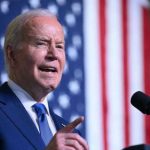The Federal Government of Nigeria has officially incorporated the malaria vaccine into its national routine immunisation schedule.
This marks a significant step toward eliminating malaria and reducing its devastating impact on public health and the economy.
At the inaugural Advisory on Malaria Elimination in Nigeria (AMEN) meeting held in Abuja, Prof. Muhammad Ali Pate, Coordinating Minister for Health & Social Welfare, described malaria as both a health and economic crisis.
“Malaria accounts for 27% of global cases and 31% of global deaths, with over 180,000 Nigerian children under five dying annually,” he said.
The economic toll includes a $1.1 billion loss to the nation’s GDP each year.
The government’s renewed commitment aligns with the Renewed Hope Agenda and the Nigeria Health Sector Renewal Investment Initiative (NHSRII).
The National Primary Health Care Development Agency (NPHCDA) confirmed that malaria vaccines would now be administered as part of routine immunisation, targeting children aged 5–15 months.
The first phase will be Rolled out in Kebbi and Bayelsa states while there will be expansion to 19 states and the FCT by 2025 for the second phase.
Coverage of the remaining 15 states will mark the third phase of the process.
The agency noted, “This initiative will protect millions of children and bring Nigeria closer to a malaria-free future.”
It would be recalled in October, Nigeria received 1 million doses of the R21/Matrix-M malaria vaccine, donated by Gavi, the Vaccine Alliance, with support from UNICEF and the WHO.
Developed by Oxford University and manufactured by the Serum Institute of India and Novavax, the vaccine is intended solely for children, not adults.
The government is optimistic that the introduction of the vaccine, alongside other health interventions, will drastically reduce malaria’s burden.
With Nigeria accounting for 27% of the global malaria burden, this initiative could save countless lives and improve productivity across the nation.
As additional doses arrive, the vaccine will be expanded nationwide, further strengthening the fight against malaria and alleviating its economic and developmental toll.








